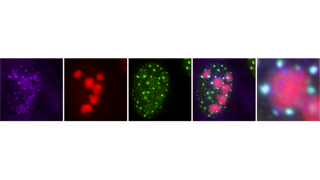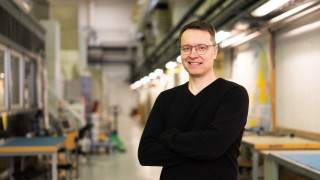University of Jyväskylä receives over €1.7 million in funding – Business Finland’s new pilot call sought for ambitious research projects

Business Finland's new Rise to the Challenge pilot call granted funding to a total of five projects, three of which involve University of Jyväskylä. The funding round sought groundbreaking research projects related to digital resilience that have the potential to create the expertise and capabilities needed by future growth sectors.
In the funding call Business Finland awarded a total of €10 million in funding. Of which University of Jyväskylä will receive €1,795,260.
The projects in which the University of Jyväskylä is involved focus on the use of artificial intelligence in software development, on protecting critical infrastructure from hybrid threats, and on industrial design and cyber security.
Project focusing on human-AI collaboration in software development receives €1 million in funding
The ANSE project, a cooperative project between the Universities of Jyväskylä and Tampere, is developing a new AI-based software development method. The method is being built from the ground up to support seamless human-AI collaboration.
The project is coordinated by Professor Pekka Abrahamsson from University of Tampere and Professor Tommi Mikkonen from University of Jyväskylä. According to Abrahamsson and Mikkonen, ANSE is the first project in the world to prepare for the arrival of new AI-native systems in the field of software development.
"Future software systems are designed from the beginning to rely on human-AI cooperation – not as an add-on, but as the foundation for all operations. The software industry is in the midst of a transformation where the introduction of individual new tools is no longer enough. We need a new, AI-centric software development method that is scalable on organisational and ecosystem levels," Abrahamsson and Mikkonen explain.
The total funding for the project is €2.5 million for the first two years of operation. Business Finland's share of the funding for the University of Jyväskylä is €1 million. The University of Jyväskylä's own funding contribution is €250,000.
Research on the role of the media in fighting hybrid threats got nearly 200,000 euros in funding
HUSKI is a research and development project coordinated by Turku University of Applied Sciences. The project aims to improve the capabilities of critical infrastructure operators to defend against hybrid threats.
From Jyväskylä, University of Jyväskylä and Jyväskylä University of Applied Sciences JAMK are participating in the project. University of Jyväskylä's role in the project will focus on academic research on the role of the media in identifying and countering hybrid threats. The research in Jyväskylä will be coordinated by Professor Turo Uskali.
“There is a great need for this kind of research at the moment. The results can also be used directly in journalism training in Jyväskylän University,” Uskali says.
The total funding for the project is two million euros, of which University of Jyväskylä share is €244,087. Business Finland's share of the funding for the University of Jyväskylä is €195,260 million. The University of Jyväskylä's own funding contribution is €48,827.
The development of a cyber-secure and intelligent design platform for industrial applications brought €600,000 in funding to Jyväskylä
The University of Jyväskylä is also involved in the REINFORCE project led by University of Tampere, which received €2.5 million in funding.
The project aims to revolutionise the early stages of the industrial design process. The goal is to develop a new kind of AI-based platform that can automate complex tasks, detect defects and take cyber security into account as part of the industrial design process from early on.
Jyväskylä University's main asset in the project is its expertise in cyber security. The aim of the project is to improve not only the performance of industrial systems but also their security. In Jyväskylä, the persons responsible for the project are Professor of practice Tapio Frantti and Project Manager Reijo Savola.
“Industrial design and industrial systems are becoming increasingly complex. Cybersecurity must be built into systems from the very beginning. It should be an integral part of system design, not an afterthought,” says Frantti.
The total funding for the project is €2.5 million, of which University of Jyväskylä share is €750,000. Business Finland's share of the funding for the University of Jyväskylä is €600,000 million. The University of Jyväskylä's own funding contribution is €150,00.
In the first phase of the pilot call, all funding has been granted for two years. If the projects reach their goals for these two years, they can get another 3–5 million euros in funding for the next three years.
Rise to Challenge pilot continues as an official call in August without any thematic restrictions.






